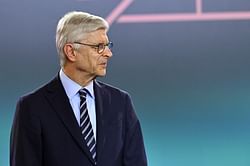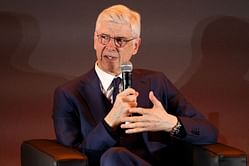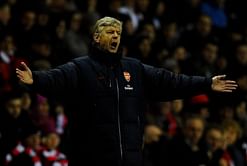Arsene Wenger is a football manager who has become synonymous with England’s Arsenal Football Club - its records, successes and more recently, its failures. However, his ability as a manager is redoubtably amazing and he is credited with revolutionizing English football to the game that it is now.
His father was a manager for a local team and guided him into the world of football. He had a modest career as a player. He has earned the nickname "The Professor" by the English and French media to reflect not only his tactics but also his demeanor. Wenger has committed himself to developing young talent at the teams he has coached.
![]()
Managerial Career and Titles
After serving at various coaching positions, Wenger got his first job as a manager at Nancy, a club that was struggling in the Ligue 1. He inherited a sub-standard squad and training mechanism which he revolutionized and led the team to a decent 12th place position.
The club was in several financial problems, and had to sell its best players and work with very little funds, leading to Wenger parting ways with the club. However, Wenger's managerial skills didn't go unnoticed as he was appointed by Monaco in 1987. He bought several new players and led Monaco to a French Division 1 league win in its first season itself, that too with a very comfortable lead. However, the club lost the domestic final that season.
In the next season, Monaco failed to retain the league title but won Coupe de France- the domestic cup. After a couple of seasons with mild success in European competitions, Wegener left due to the corruption that was plaguing French football at that time.
He then coached in the Japanese league. With the Nagoya Grampus Eight, the Frenchman won the Emperor's Cup and the Japanese Super Cup.
In 1996, Wenger moved to England to join Arsenal, where he had his dream run in the initial seasons. In 1998, he won the FA Cup and Barclays Premier League, a domestic double. This was repeated again in the year 2002.
However, his greatest achievement came in 2004, where he led Arsenal to an undefeated run in the Premier League, claiming the title in a way which hadn't been done in the past century. In all these three seasons, he was declared as the Manager of the Season by Premier League.
In 2006, Arsenal reached the finals of the Champions League, but lost to Barcelona. After enjoying success in back to back years, he went trophyless for the next nine seasons. But just as Arsenal fans were calling for his resignation, he guided the team to the FA Cup win in 2014, and repeated the feat in 2015 and 2017.
For his contribution to the world of football as a manager he was inducted into the English football Hall of Fame in 2006. He has won a total of 17 titles in Arsenal, and a cumulative of 21 titles, winning 2 each with Monaco and Nagoya Grampus.
Tactics
Wenger's tactics have been described as entertaining by both pundits and fans.
In his early years, Wenger was an advocate of the 4-4-2 formation, as he believed that it covered the maximum space for the team. Wenger has always believed in allowing his players to play by their gut and intuition. He has let the players to make mistakes and learn from them, something for which he has been both praised and criticized.
During Arsenal's dream run, Wenger played a 3-5-2 formation, which was very similar to a 4-3-3 in terms of how each position was utilized. He has shown versatility in terms of switching between counter-attacking and a possession form of play.









